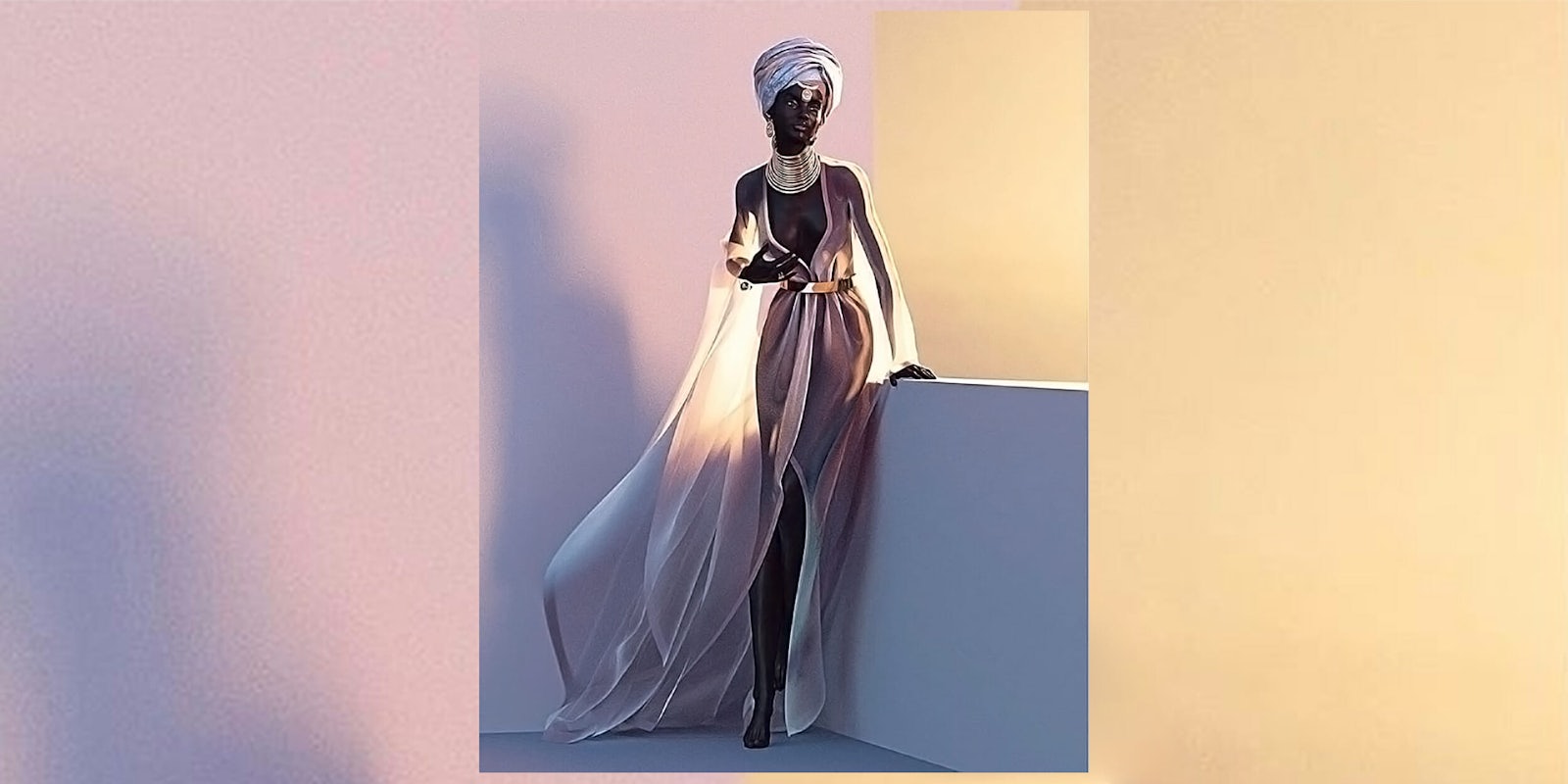Twitter users are scratching their heads over a Black 3D Instagram model whose creation, despite possible good intentions, may be hindering the work and representation of real, living Black women.
Digital Instagram model Shudu began trending across Twitter earlier this month after she featured on Fenty Beauty’s Instagram wearing one of the line’s shades. Then on Tuesday, after Affinity Magazine published a video highlighting her creation, Shudu took the internet by storm.
Created by London photogramer Cameron-James Wilson, who developed her using 3D modeling software, Shudu is an opportunity to represent a “movement with dark skin models” in fashion, he told Harper’s Bazaar. In an industry that traditionally values white and lighter-skinned models, Shudu has a dark complexion, like many real women of color who never see themselves represented.
https://twitter.com/TheAffinityMag/status/968562007090913280
That doesn’t necessarily mean Shudu is beloved by everyone, however. Many women of color have criticized Wilson, pointing out that by using Shudu, he isn’t actually divesting any money into Black models with darker skin complexions.
https://twitter.com/Namastaywoke/status/968563720560443392
“He created her to represent the beauty of models today.” You know who could represent them better? Them.
— Patricia Melt (@rdhesselbrock) February 27, 2018
Guess they don’t want to pay one pic.twitter.com/kfhMJlmm7h
— richard allen (@geechee41) February 28, 2018
“wilson created shudu to represent the models of today and their beauty” then just use the fucking models then ???? idgi https://t.co/V1DXM2WPDB
— cerys / @solongfolklore.swifties.social (@solngfolklore) February 28, 2018
“Models like Duckie Thot are a really big inspiration for the look of Shudu”
— Jon Alexander (@directedxjon) February 28, 2018
“He noticed there was a big movement with dark skin models”
Bruh, this is so trash on so many levels. https://t.co/6QTeirGtsG
but in reality it does take away jobs from black models that are fighting to get exposure in the industry look Anok Yai who was the 1st black opener in 10 years for Prada and A$ap Rocky being he first black man to be the face of Dior we need more stories like that from brands
— J (@jonsznz) February 28, 2018
There’s also the fact that Shudu is just a 3D model, which means she doesn’t have the same autonomy to reject photoshoot settings, modeling poses, and the depiction of her physical appearance in the same way that models of color do in the real world. Shudu is basically a virtual plaything for Wilson and any brand that promotes her. Plus, many of her Instagram poses feature her nude or semi-nude, sparking a larger conversation on the objectification of Black women’s bodies by a white man.
As much as I appreciate art I detest the fact that the minute dark skin is finally glamourized by the mainstream media a white man finds a way to commericalize & capitalize off it. Black skin is not a trend. Black skin is not a toy. Black women even more not so. #Shudu #FreeShudu pic.twitter.com/pu79IGcU1s
— Sonia (@adrianette_) February 28, 2018
So Shudu was created by a white man to profit off of black women without actually having to pay them??? HELLA NERVE. Technology came a long way however It’s plenty of dark skinned models who look like her but they get overlooked. Book them instead of cloning them. https://t.co/oiB7vA8l7U
— Drebae (@Drebae_) February 28, 2018
I’m sad that Shudu is a computer generated model made by a white man who basically is feeding off dark skin women.
— Casper (@_k1smet) February 28, 2018
https://twitter.com/FroPaz444/status/968729153003511809
Still, some think Shudu is a net positive for Black women. They see Wilson’s model as fundamentally good-intentioned and as an opportunity to raise visibility both for women of color with darker skin tones in modeling, as well as Black women around the world whose bodies are underrepresented in mass media.
https://twitter.com/HelenaSadeghi/status/968784410920275968
https://twitter.com/denisetaquito/status/968778108697497600
https://twitter.com/modelinthewild/status/968855949850144773
https://twitter.com/looveparanoia/status/968826160326103040
https://twitter.com/KristineEff/status/968790166214242304
Shudu may be trending right now, but she’s part of a much bigger conversation on digital blackface, in which white internet users take GIFs and photos of Black people and repurpose them for memes and reaction images. In some cases, companies like Snapchat have blatantly participated in digital blackface, sparking concerns that tech companies are prone to objectifying Black bodies and likely to let racism slide on their platforms.


